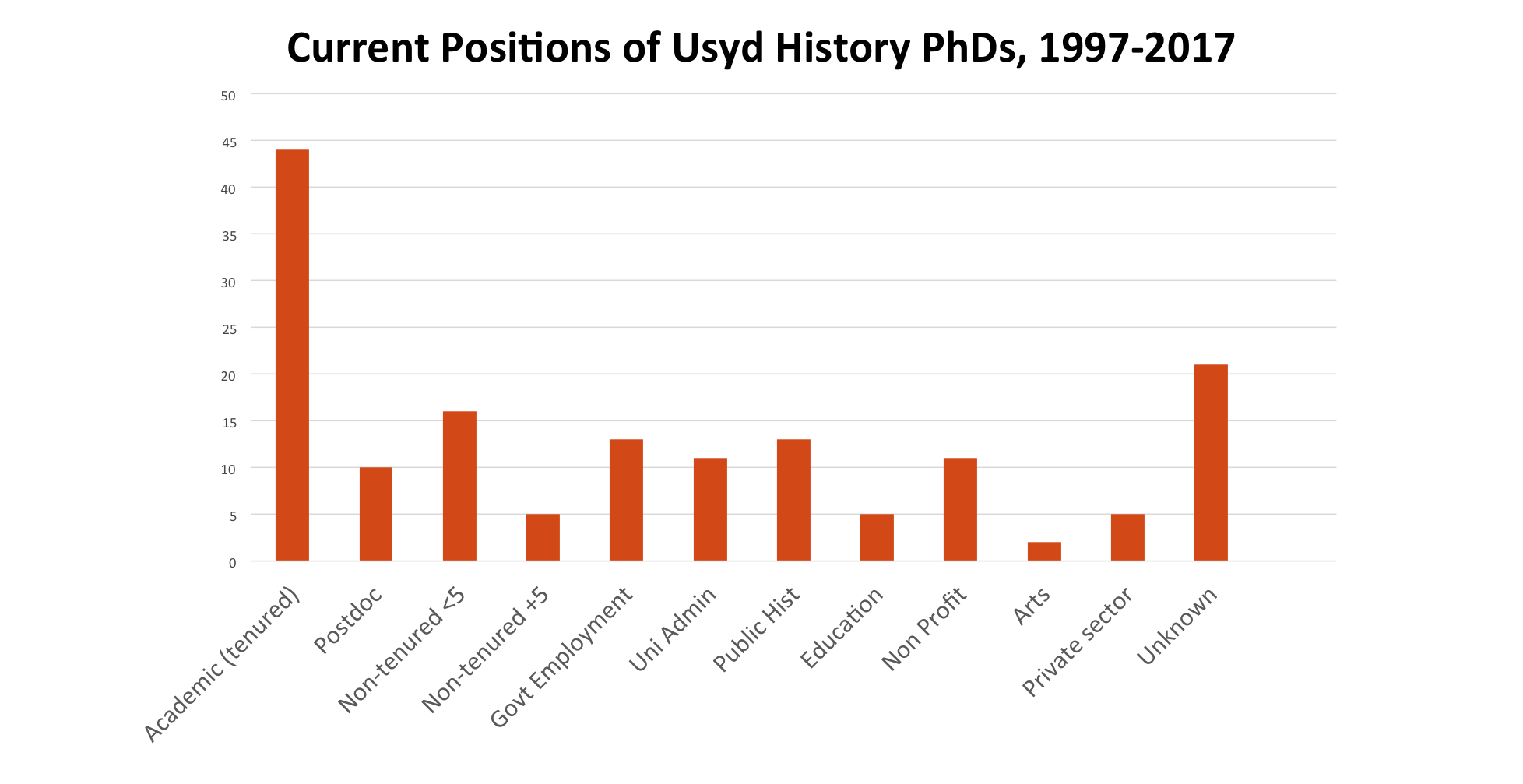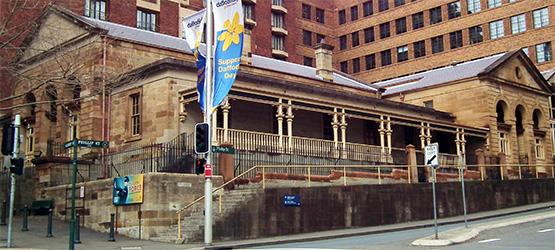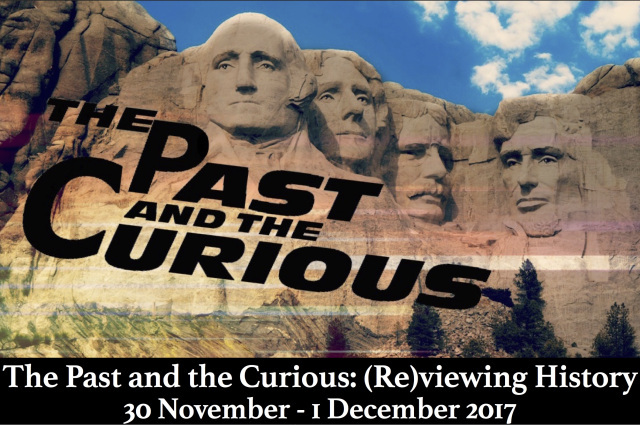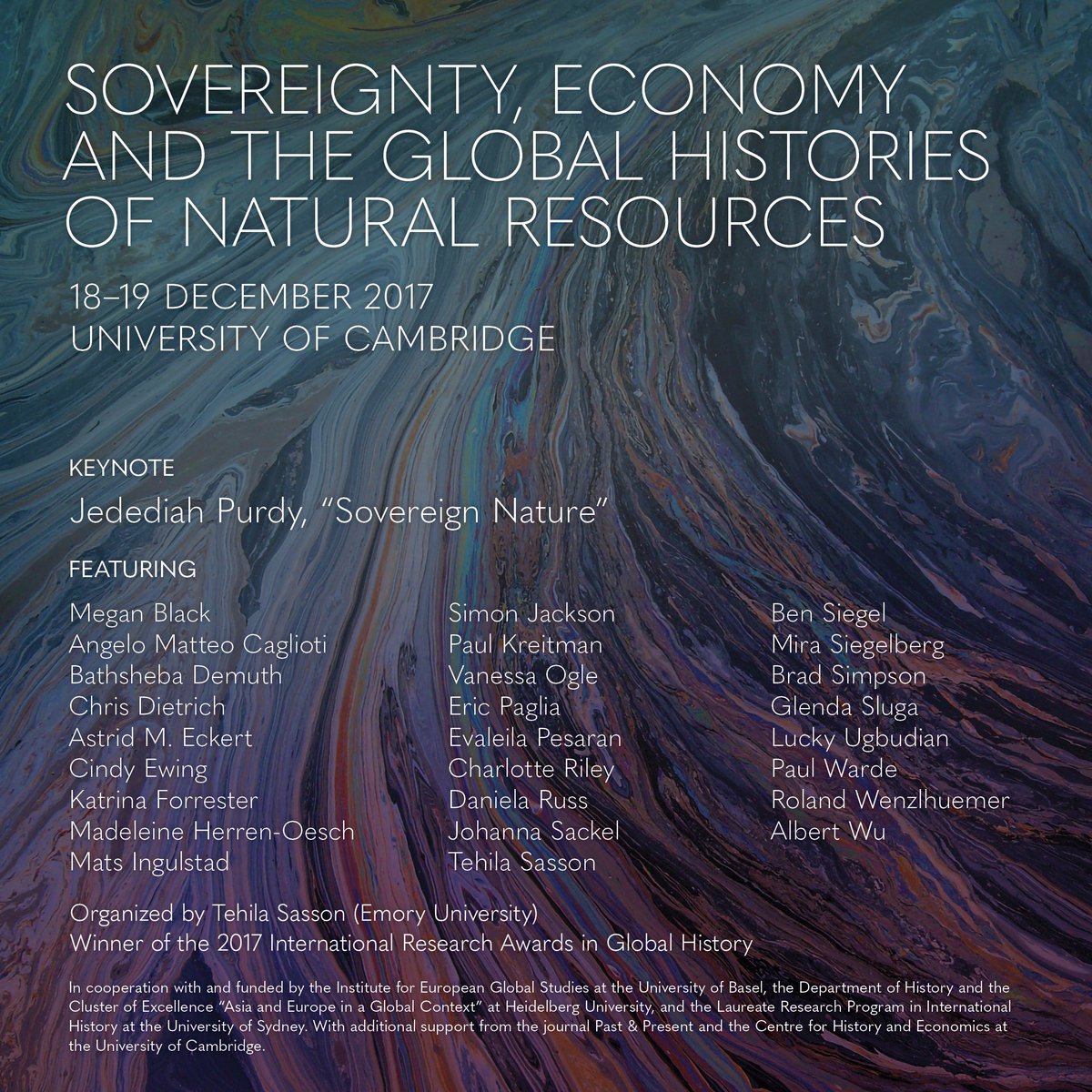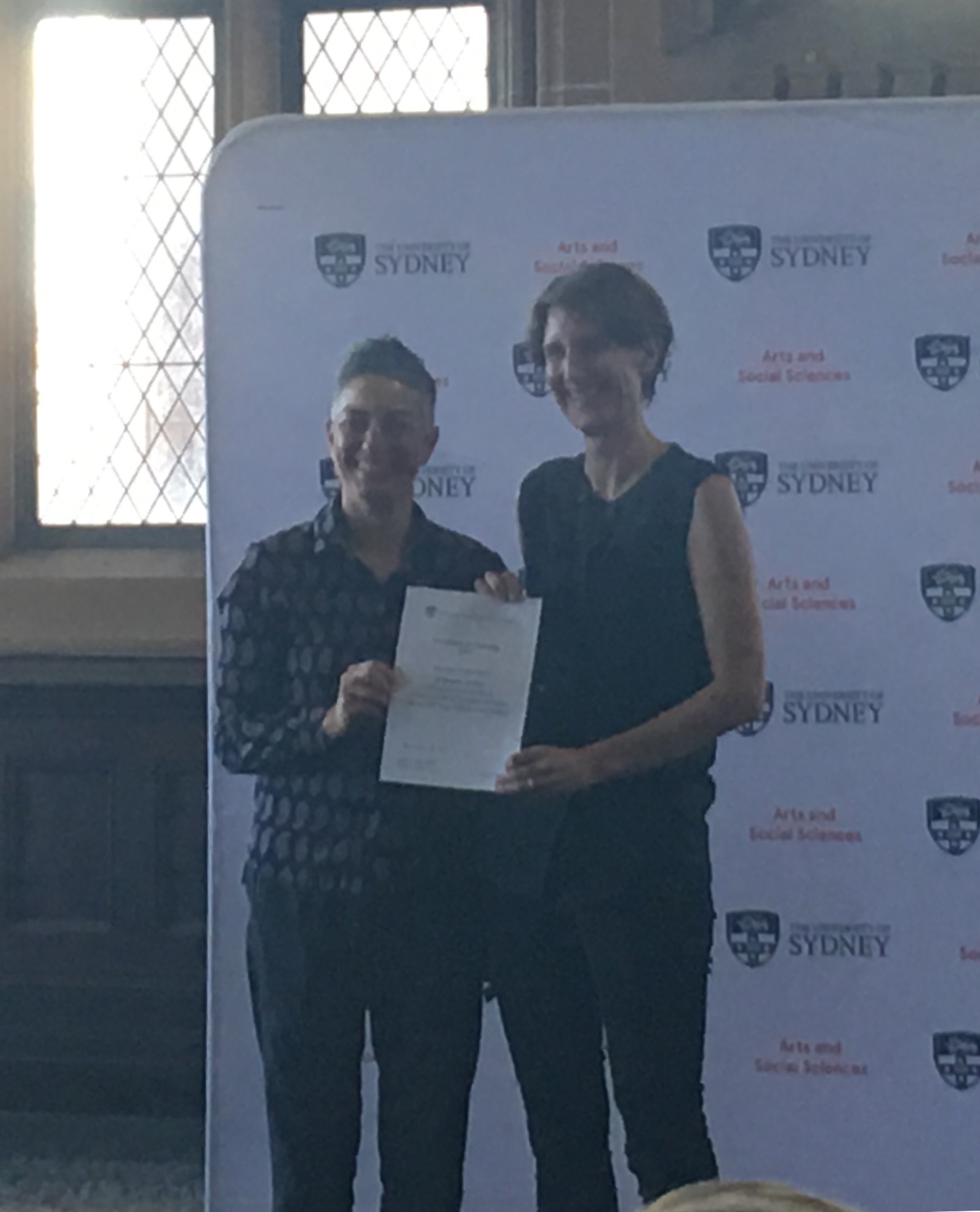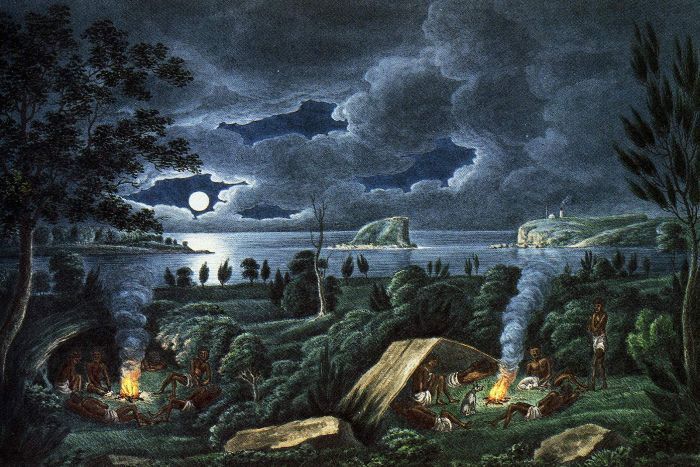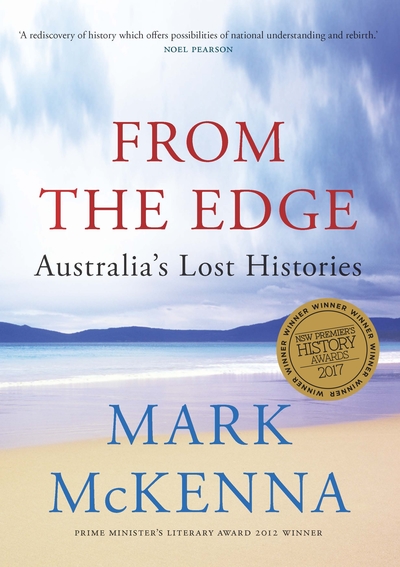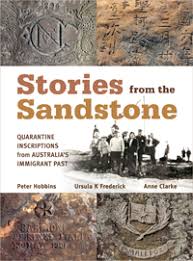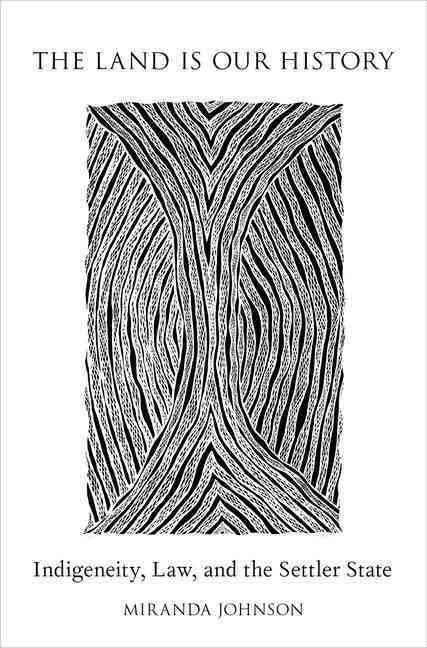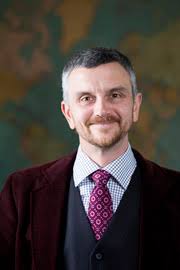In this blog entry, postgraduate coordinator Dr Frances Clarke reports on the results of a survey she initiated of our PhD recipients over the last twenty years. You can download the results and a presentation she made on “Planning a Future in the Midst of Insecure Job Prospects” for the November 2017 History Postgrad Conference here: Download file
Over the past 20 years, 169 graduates have received doctorates. Subtracting those who have retired, died, or completed in the past five years (most of whom are still looking for full-time work), 139 graduates remain. Of this number:
31.6% have a tenured academic job
11.5% work in public history (as curators, archivists, policy officer, grants coordinators, consultants, city historians, tourism industry employees)
7.9% are in university admin (as research coordinators, faculty research managers, senior strategy and projects officers, senior advisers and governance specialists, research fellows, etc.)
7.1% have a postdoc
7.1% are in government employment (as policy officers, researchers, analysts, etc.)
7.1% work in the non-profit sector or are self-employed (as freelance writers, editors, indexers, research affiliates, or activists)
3.5% are still looking for an academic job after 5 years
3.5% are in teaching (as high school teachers, curriculum developers, textbook designers, etc.)
1.4% are employed in arts-related fields (as journalists, documentary film makers, screen writers).
3.5% are employed in the private sector (as lawyers, consultants, small business owners).
15.1% Could not be located (most likely because they have retired, moved overseas, or left the paid workforce).
The number of individuals in each category:
44 Academic (tenured)
16 Public Hist / Researcher / Editor
11 Univ Admin
10 Postdoc
10 Govt Emp
10 Nonprofit Emp / Self Emp
5 Casual 5+yrs
5 Teaching
2 Arts (journalism/doc film maker/theatre)
5 Private sector (business/law/consultancy)
21 unknown / not currently looking for work / retraining
16 Casual or contract <5 yrs 14 Retired / deceased == 169
